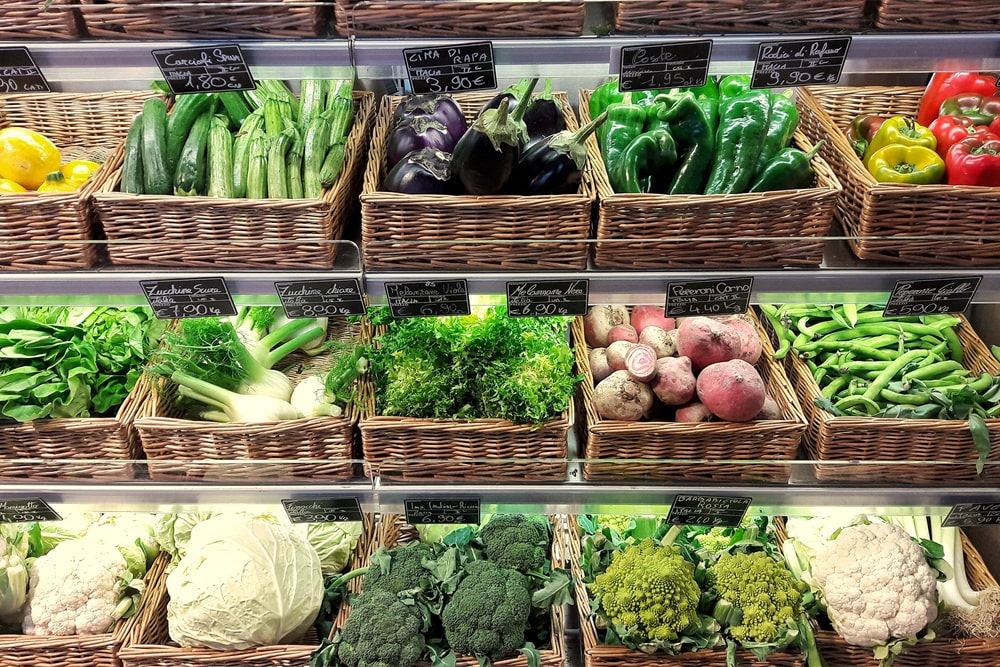Winter season foods
The start of June marks a change in season, winter which means soups, slow cooks and roast are all the rage when it comes to dinner time meals. However, it is not just the menu that changes with the seasons, the produce that makes our meals also changes. Today we’re discussing what is seasonal eating and the benefits of eating seasonally as well as ways we can make it happen.
What is seasonal eating?
Seasonal eating refers to eating fruits and vegetables that are currently “in season” or at the peak of their ripeness and flavour at a specific time of the year. Eating these the foods that are in season and provide a multitude of benefits to you and the environment.
Benefits of eating seasonal foods
There are many benefits of eating seasonally but here are just some of the reasons why eating to the seasons will help you and your family.
- The food just tastes better – in season produce is fresher, juicier and overall taster when its perfectly ripe and in season. Fruits and vegetables that have been chilled for long periods will have reduced flavour and possible texture changes which doesn’t make for a pleasurable eating experience.
- It won’t break the bank – Did you know that if you eat foods in season, they are likely to be cheaper? With the cost of living currently increasing with what feels like every day paying $14/kg for a capsicum seems ridiculous but if you chose to eat seasonally and instead added Asian greens or carrots to your stir-fry then you won’t feel like you need a loan just to make dinner. Shopping seasonally from farmers markets can also reduce the cost further as it is coming straight from farm to plate without the supermarket middle man.
- Riper the fruit the high the nutrition – at the peak of ripeness is when foods have their highest nutritional content. This is why sometimes you may hear frozen foods have more nutritional value because when ripe foods are picked they are then frozen in that state straight away trapping the high nutritional value. When you choose to eat seasonally you chose to eat foods that are currently at their height of ripeness meaning the nutritional value you get from them will be tip top. Eating in season foods also ensure you get variety all year round meaning more access to different vitamins and minerals.
- Helps reduce your carbon footprint – buying foods that aren’t in season means they need to be transported in from areas where they are. This could mean they come from interstate or even overseas. The more travelling your food does the bigger the carbon footprint and therefore worse off for the environment.
Seasonal fruits and vegetables calendar
Winter
Fruits: grapefruit, kiwi fruit, lemon, lime, mandarin, orange, tangelo.
Vegetables: Asian greens, bean sprouts, broccoli/broccolini, beans, brussels sprouts, carrot, cauliflower, fennel, kale, mushrooms, peas, potatoes, silverbeet and spinach.
Spring
Fruits: banana, grapefruit, lemon, oranges.
Vegetables: Asian greens, artichokes, asparagus, bean sprouts, beetroot, broccoli, brussels sprouts, cabbage, cauliflower, leek, fennel, peas, rhubarb, silverbeet, spinach
Summer
Fruits: banana, berries (blackberries, blueberries, raspberries, strawberries), cherries, grapes, melons (watermelon, honeydew melon, rock melon), stone fruit (nectarines, apricots, peaches), plums, oranges.
Vegetables: Asian greens, asparagus, beans, bean sprouts, beetroot, broccoli, cabbage, carrots, cauliflower, celery, chillies, cucumbers, eggplants, lettuce, mushrooms, pumpkin, rhubarb, snow peas, spinach, spring onions, sweetcorn, tomatoes, turnips, zucchini.
Autumn
Fruits: apples, bananas, figs, grapes, kiwifruit, lemons, nectarines, pears, grapes, quince, persimmons, plums., watermelon.
Vegetables: Asian greens, asparagus, beans, beetroot, bean sprouts, broccoli, cabbage, carrots, cauliflower, cucumber, eggplant, lettuce, mushrooms, potatoes, pumpkin, snow peas, spring onions, sweetcorn, tomatoes, turnips, zucchini

Written by Jess Koznedelev
Jess has a great passion for all things food, especially the joy it can bring people. Her big passion areas include Health At Every Size®, eating disorders & paediatric nutrition.
As accredited practicing dietitian, Jess provides an evidence-based, individualised approach to help you make sustainable health behaviour changes that are long lasting.
 WISHING EVERYONE A HAPPY NEW YEAR! WE'VE RETURNED TO OUR REGULAR OPENING HOURS
WISHING EVERYONE A HAPPY NEW YEAR! WE'VE RETURNED TO OUR REGULAR OPENING HOURS




